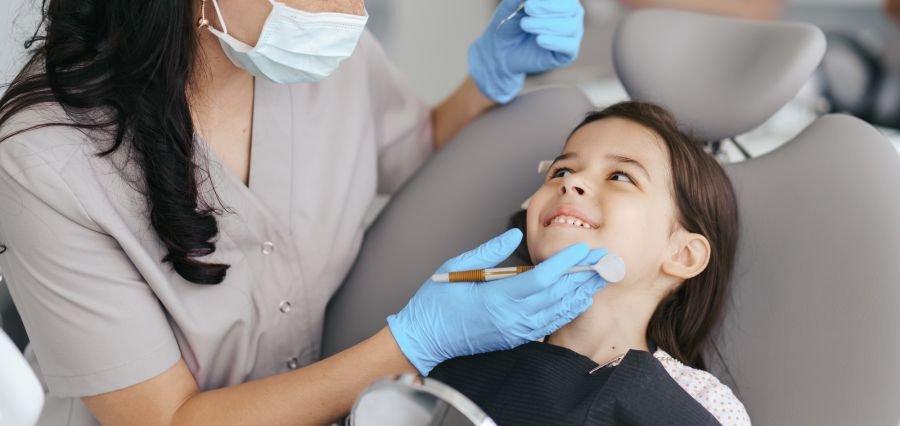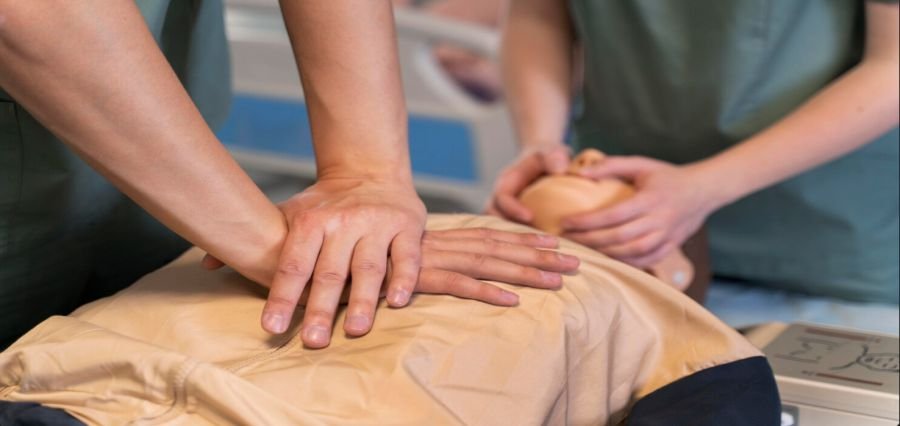Because of the unpredictability of life, unexpected urgent medical situations can arise at any time. It just takes a few minutes for someone to go into cardiac arrest, which can result in severe damage to both the heart and the brain. A lack of oxygen to the brain can lead to major consequences, which can ultimately result in permanent damage to the brain or even death when left untreated.
When faced with such circumstances, an individual who is knowledgeable about cardiopulmonary resuscitation (CPR) or basic life support (BLS) has the potential to save lives. This article will explain what Basic Life Support and Cardiopulmonary Resuscitation or BLS/CPR certification is, why it is necessary, and how one might go about obtaining it.
What is a BLS/CPR Certification?
The Basic Life Support and Cardiopulmonary Resuscitation (BLS/CPR) certification is a training program that teaches persons how to offer medical support during incidents that pose a threat to their lives.
Learners will be instructed on how to do cardiopulmonary resuscitation (CPR), how to use an automated external defibrillator (AED) correctly, and the fundamentals of first aid as part of the certification program. Those persons who are interested in being ready for any kind of emergency situation will find the course to be an invaluable resource.
Why is BLS/CPR Certification Important?
- Life-Saving Skill: BLS/CPR certification helps an individual to be prepared in medical emergencies that can save a life. The certification ensures you have the skills required to provide basic life support which can be the difference between life and death.
- Increased Employment Prospects: Employers look for employees with BLS/CPR certification due to the added advantage of having them in the workplace.
- Saves Time and Money: With BLS/CPR knowledge, you can provide initial lifesaving medical assistance, which can prevent expensive hospital visits.
- Safety: Basic life support ensures the safety of everyone involved in a medical emergency. It minimizes the risk of unintentional harm, and improves the patient’s chances of staying alive.
How to Get BLS/CPR Certified?
- Find a certified training provider: The first step is to find a certified training provider. Choose a training facility relying on feedback and accreditation. Ensure that the training center is recognized by a reputable organization such as American Red Cross or American Heart Association.
- Attend Training Sessions: Attend the training sessions to learn the practical skills needed to perform BLS and CPR correctly. Many BLS/CPR courses require first aid knowledge, so ensure you have that covered before starting the program.
- Complete The Course: After finishing the practical training, successfully complete the final written exams.
- Get Certified: Once you complete the written exams featuring what you’ve learned in the training sessions, you become a certified Basic Life Support Provider.
In general, obtaining a certification in basic life support and cardiopulmonary resuscitation (BLS/CPR) is necessary for everyone who wishes to be better prepared in the event of a medical emergency. Obtaining a certification can not only improve your chances of finding work, but it can also provide you with a sense of purpose and peace of mind. As a result of having this information, you will be able to perform your duties as a first responder in a sensitive manner and guarantee that a patient has the best possible chance of life. Now, what exactly are you holding out for? Sign up for a Basic Life Support and Cardiopulmonary Resuscitation (BLS/CPR) training right away to become a trained lifesaver!
What to Consider in a BLS/CPR Certification Provider
It is essential to be well-prepared for medical emergencies, whether they occur at home or in the workplace. For this reason, Basic Life Support (BLS) and Cardiopulmonary Resuscitation (CPR) training is vital. Nevertheless, selecting a certification provider can be challenging due to the abundance of alternatives. We will discuss the essential considerations when searching for a BLS/CPR certification provider in this blog post.
- Accreditation
The first thing to consider when looking for a BLS/CPR certification provider is whether they are accredited by a recognized organization. Accreditation ensures that the provider follows national standards and guidelines, and their courses meet the necessary requirements for certification. Look for providers that are accredited by the American Heart Association (AHA), American Red Cross, or the National Safety Council.
- Course Schedule and Availability
Another factor to take into account is the availability of courses and class schedules. Choose a provider that offers flexible scheduling options, including weekends and weekday evenings, as well as classes that can be completed online or in-person. Providers that offer a variety of course options can work well for individuals with busy schedules.
- Instructor Qualifications and Experience
Make sure to do your research on the instructors at potential BLS/CPR certification providers. Instructors should be experienced and highly qualified in their field, with certifications from recognized organizations such as the American Heart Association or the American Red Cross. Qualified instructors can provide a comprehensive and engaging learning experience.
- Course Content and Duration
The course content and duration are also factors to consider. Look for courses that cover the necessary skills and information, such as how to recognize and respond to medical emergencies, as well as proper techniques for performing CPR and using an automated external defibrillator (AED). The duration of the course can vary depending on the provider and course level. Basic courses can take anywhere from two to four hours, while advanced courses can take up to eight hours.
- Price and Value
Lastly, consider the price and value of the courses offered by the certification provider. Choose a provider that offers competitive pricing without sacrificing the quality of the course. Some providers may also offer discounts for group bookings, students, or military personnel. Remember that investing in a quality BLS/CPR certification can save lives, and the value of the knowledge and skills gained cannot be underestimated.
It is critical to select a BLS/CPR certification provider after conducting adequate research and taking into account the aforementioned considerations. When choosing a provider, several factors come into play: accreditation, course availability, instructor qualifications and experience, course content and duration, as well as price and value. Investing in a quality certification ensures that you are adequately prepared to handle a medical emergency at a critical juncture.










